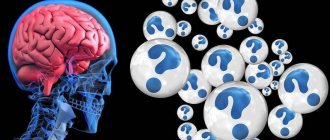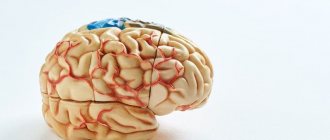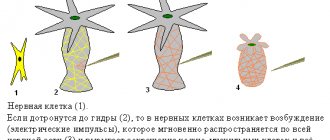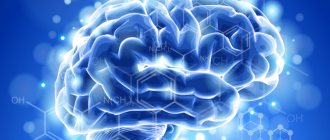Alcohol and nicotine are common, but far from the best means of dealing with stress. Positive emotions, proper rest and a properly composed diet will help improve your well-being and improve your mood. Yes, in difficult times, problems with appetite often arise: some people constantly want to chew something, while others cannot get a piece of food into their throats. However, it is important to overcome yourself, create a clear diet program and follow it. And we will help you a little, tell you about proper nutrition during stress.
Why is stress dangerous?
At first glance, stress may seem harmless. But it is not so. While short-term stress can lead to bothersome headaches, stomach cramps, weight gain, and an increased chance of catching colds and flu, chronic stress affects every cell in your body, from your digestive and reproductive systems to your immune system.
According to the National Institute of Mental Health, located in the United States, chronic stress, left unchecked, increases the risk of diseases such as obesity and type 2 diabetes, and also leads to heart problems and depression.
The conclusion is obvious. Stress makes us irritable, fat and sick. But you can fight it and it is recommended to do this with the help of diet.
The relationship between nutrition and stress
In a stressful state, the only advantage you can find is increased brain function. The body activates all its adaptive capabilities, the nervous and endocrine systems: hormones are produced that accelerate the heartbeat and breathing, which leads to an improvement in the supply of oxygen to the brain. The speed of thought increases, but what kind of work does not require replacement of spent energy?
Eating under stress must be controlled by adding healthy foods to your diet. This approach can significantly relieve the body’s costs.
Nervous stress is associated with the production of two hormones - adrenaline and cortisol. The human body spends all previously accumulated useful elements, so the head begins to hurt, blood pressure rises, sleep disappears, chronic fatigue increases, blood circulation in the brain is disrupted, and the appearance of nails, skin, and hair changes. Proper nutrition will help compensate for such a low-resource state.
There are a number of foods that can improve your mood and significantly reduce the negative effects of depression. Conversely, voluntary refusal to eat certain foods, often practiced in diets, can trigger the body’s adaptive capabilities, leading to stress.
What can you eat when you're stressed?
The following products will help cope with nervous tension:
- dark chocolate;
- complex carbohydrates;
- fatty fish;
- milk;
- bananas;
- oranges and other fruits rich in vitamin C;
- avocado;
- nuts;
- greenery;
- purified water.
To calm down, all I need to do is drink a cup of warm tea (green, chamomile) or milk. And you?
TOP 7 anti-stress products
Citrus
During stressful situations, the human body produces certain hormones: adrenaline, norepinephrine and cortisol. Adrenaline is responsible for our body's reactions during times of stress, and cortisol helps the body withstand a stressful situation. If these hormones are not produced in normal quantities, then a person may develop depression due to stress.
Subscribe to our INSTAGRAM account!
Citrus fruits contain a lot of ascorbic acid, which affects the function of the adrenal glands, participating in the formation of stress hormones. Thus, oranges, tangerines, lemons and grapefruits are important anti-stress foods.
Walnuts
Walnuts contain alpha-linolenic acid, one of the Omega-3 polyunsaturated fatty acids. It regulates blood pressure, inhibits the production of stress hormones, preventing depression from developing, and corrects mood.
It is also found in pumpkin and flax seeds, almonds and other nuts. It is vital to obtain this acid from food, since the body itself does not produce it.
Like other seafood, seaweed is rich in iodine, a microelement that ensures normal functioning of the thyroid gland. And the thyroid gland is responsible for the normal functioning of the nervous system and brain, protecting the body from stress.
Oatmeal contains a large amount of slow carbohydrates, which increase serotonin - the hormone of happiness. It regulates mood and keeps the entire hormonal system normal.
Follow Econet on Pinterest!
Oatmeal is also rich in fiber, for the processing of which the intestines use certain microflora. As a result of this process, glucose is released, which saturates the body and brain with energy.
Asparagus contains vitamin B9 (folic acid), a deficiency of which often causes depression in people. Folic acid increases stress resistance, calms nerves and improves mood. It is also present in vegetables, mostly green: celery, spinach, white and cauliflower cabbage, sorrel and other, mostly green vegetables.
In addition, asparagus contains potassium, necessary for the normal functioning of the nervous system, and fiber, which removes toxins. It has been proven that the body, contaminated with waste and toxins, is practically unable to resist stress.
Dark chocolate
We are talking about chocolate with a cocoa content of at least 70%. The cocoa beans from which it is prepared contain flavonoids that have antioxidant properties. They lower and regulate blood pressure levels and support heart function. They also produce the hormone serotonin, which copes with stressful conditions and improves mood. To protect your body from stress, you need to consume 30 g of real dark chocolate every day.
Green tea
Green tea contains theanine, an amino acid that increases alpha activity in the brain. A mug of this drink will give you a feeling of peace, a state of calm and lightness without drowsiness. In addition, theanine enhances the production of dopamine, which improves mood.
Green tea also contains ascorbic acid and other substances with antioxidant properties that relieve fatigue and nervous tension. But the most important thing is that tea also gives energy and enhances brain activity.
All people have to deal with stress from time to time. To protect your physiological and psychological state, take a closer look at the products on the list. They will be good helpers in the fight for peace.published econet.ru
7-day detox program for weight loss and cleansing
What should you not eat when you are stressed?
The following products will not help cope with the level of nervous tension. They can only aggravate the situation, so they should be excluded from your menu when stressed:
- Drinks with high caffeine content. There's nothing wrong with drinking a cup of coffee or black tea at the start of the day. But it is better not to drink invigorating drinks after lunch, as this can interfere with sleep.
- Alcohol. It will not help you calm your nerves, but will only contribute to the development of depression.
- Refined sugar. Avoid cookies, cakes and sweets, which quickly raise your blood sugar levels.
How to deal with stress through nutrition
Taking into account the body's need for nutrients under stress is the main task when planning any diet, regardless of who it is intended for and for what diseases. If the body's response to stress is understood and the diet is designed accordingly, we will almost certainly solve the problem of achieving good health.
Any condition that harms the body, destroys or kills cells is defined as stress. If the food is complete, restoration occurs quickly, but when “repair” does not keep pace with destruction, disease occurs. Diseases occur from multiple stresses, such as anxiety, overwork at work, possible bacterial or viral infection and vitamin-poor food, lack of sleep and exercise. Unfortunately, this is usually accompanied by numerous other disorders: poor appetite, nausea, vomiting, poor absorption of vitamins, minerals, fever, pain, diarrhea, dehydration, loss of many nutrients in the urine, x-ray exposure and the use of medications.
Just as more materials are required to repair a damaged house than to maintain it in good condition, so to restore a body damaged by multiple stresses that cause and re-occur from disease, each nutrient is required in large quantities. For example, stress (or injury) from x-ray exposure or the use of commonly used medications appears to increase the need for protein, linoleic acid, several minerals, vitamins A and C, and all B vitamins.
Regardless of the form of stress, the body immediately tries to correct the damage caused, but under the indispensable condition of an adequate supply of all nutrients. The need for them, unfortunately, increases enormously precisely at a time when it is especially difficult for the body to obtain them, since food that is nutritious for a healthy person becomes incomplete for a sick person.
Thousands of scientific studies support the theory that the body responds to all types of stress in the same way. When stress occurs, a small gland at the base of the brain, the pituitary gland, begins (and coordinates) protective actions by releasing chemical message carriers, the hormones ACTH and GH. These hormones, carried by the blood to two small glands above the kidneys (adrenal glands), cause the outer layer of these glands (the cortex) to produce cortisone and other message carriers. Although the center of these glands produces adrenaline, by adrenal hormones we will mean those produced specifically by the adrenal cortex.
These hormones quickly prepare the body to face danger: proteins initially released from the thymus and lymph glands are broken down to form sugar needed for immediate energy supply, blood sugar levels soar and excess is stored in the liver in the form of animal starch (glycogen), which can, if necessary, immediately turn into sugar. Blood pressure increases, minerals are released from the bones, fats are mobilized from reserves, salts are retained beyond normal limits, and many other changes occur that prepare the body to “fight or flee.” These changes make it possible to “repair” vital tissues in a way that “robs Peter to pay Paul.” This stage, called the “anxiety response,” varies in intensity depending on the degree of stress.
If the state of stress is prolonged, the body adjusts to the “resistance stage”, in which it restores itself with the help of any raw materials available “at hand”. When a diet is well balanced, a person can withstand enormous stress for years without noticeable health problems. However, if there are not enough “raw materials”, the “depletion stage” occurs. Some disease develops, and death is not far off.
The first two stages of stress are characterized by constant destruction and restoration. Most diseases occur in the third stage, which is reached when recovery is impossible. Severe stress (radical surgery, a serious car accident, or a severe burn) can cause a person to “slip through” all three stages—anxiety, resistance, and exhaustion—in one day. More often than not, we experience repeated “anxiety reactions” and experience the hundreds of “stages of resistance” that make up our lives. During every illness, however, we are in one of these three stages, and to restore health, our diet must be planned accordingly.
If the state of stress continues, the thymus and lymph nodes, whose protein has been purposefully destroyed, shrink, and protein from the blood plasma, liver, kidneys and other parts of the body is then used. Stomach ulcers are formed not only due to increased production of hydrochloric acid, but also due to the fact that proteins are “stolen” from the walls of the stomach. In ulcerative colitis, protein destruction caused by ongoing stress literally eats away the lining of the intestines. In one day of severe stress, the excretion of nitrogen in the urine causes the body to lose as much protein as is contained in 4 liters of milk. However, if you compensate for this huge loss during the day by consuming appropriate foods, the tissues will remain intact.
Under stress, many destructive changes occur in the body simultaneously. Each of them, such as high blood pressure, lack of protein and calcium (excreted from the body and not compensated for), can be dangerous. However, first and foremost, it is important for all of us to know how to protect ourselves from the damaging effects of stress in general.
The need for nutrients increases many times over
The ability to cope with stress depends critically on the body's ability to produce pituitary and adrenal hormones. If there is not enough protein, vitamin E or B vitamins, riboflavin (vitamin B2), pantothenic acid or choline in the diet, the pituitary gland cannot produce enough hormones. It has been established that vitamin E, which is most concentrated in the pituitary gland, is especially important. It protects the hormones of both the pituitary and adrenal glands from destruction by oxygen.
Deficiency of linoleic acid or vitamins A, B2 or E can also limit hormone production and cause degeneration of the adrenal cortex. Therefore, they are as important for the body as pantothenic acid.
Although adrenal hormones can be produced without vitamin C, the need for this nutrient increases immeasurably under stress. If their supply is insufficient, the adrenal glands quickly begin to bleed, and the output of hormones is noticeably reduced. Vitamin C accelerates the production of cortisone, improves its utilization, slows down the breakdown and eliminates many of the limitations resulting from an insufficient supply of pantothenic acid. During stress, a large amount of vitamin C is excreted from the body in the urine, which occurs, in particular, due to its increased consumption to “neutralize” hazardous substances.
Huge amounts of vitamin C have been shown to protect our bodies from any form of stress. Under severe stress, a person's daily requirement for this vitamin increases almost 75 times, which is about 5625 mg.
A nutrient that helps healthy people with short-term stress can be truly invaluable for sick people who experience stress for months and sometimes years.
Pantothenic acid is needed by every cell in the body, but its deficiency most severely interferes with the adrenal glands' production of cortisone and other hormones. Therefore, its deficiency primarily indicates depletion of adrenal function.
Urine tests of patients with pantothenic acid deficiency show a sharp decrease in the amount of adrenal hormones, which decreases over time. They develop low blood pressure, dizziness, extreme fatigue, muscle weakness, drowsiness, stomach upset, rapid pulse when exerting themselves, and persistent respiratory infections, especially strep throat and sore throat. The amount of digestive enzymes and stomach acidity are noticeably reduced; There is dysfunction of the peristalsis of the stomach and intestines, which is so important for digestion and absorption of food. When taking cortisone and 4 g of pantothenic acid per day, recovery is slow, adrenal function is restored to normal only within three weeks.
When these symptoms appear in a sick person who is under a lot of stress and whose diet is poor, a mild illness becomes serious, and a serious illness can be fatal.
In mild illnesses, the body may need only minor improvements in diet, but a serious illness, when stress is constantly superimposed on stress, increases the need for nutrients both in the whole body and in the pituitary and adrenal glands in particular, any deficiency is aggravated in proportion to the number, type and intensity stress. Often, so much vitamin A is lost in urine that any reserves in the body are quickly depleted. Severe stress also makes “non-essential” amino acids (those normally produced by the body) essential because the body cannot produce them quickly enough. Satisfying such nutritional needs is certainly easy.
The “ability” of each of us to cope with stress largely depends on the adequacy of our nutrition, both before and during it. Poor nutrition can be compared to an iceberg, most of which is hidden until it collides with the Titanic of stress, after which the catastrophic effect becomes obvious.
Certain substances called anti-stress agents have not yet been identified, but have a surprising protective effect against most types of stress.
They have been found in liver, especially pork liver, wheat bran, some yeasts, kidney, and soy flour from which the oil has not been extracted. Another equally potent anti-stress component, different from that found in the liver, was found in green leafy vegetables. Research shows that sick people should be as careful as possible about the quality of their daily food.
If so little cortisone is produced that the DOC does not balance it, the inflammation gets out of control and continues year after year, as is the case with arthritis, some allergies and other diseases. On the other hand, if too little DOC is produced or if cortisone is taken as a drug, the body becomes susceptible to infection, inflammation and toxic damage.
Another adrenal hormone, aldosterone, retains salt (sodium) and water in the body, thus preventing dehydration. If it is produced in excess, during the first two stages of stress, the body can retain so much water that the hands, ankles and eyes swell and too much potassium is excreted in the urine. This condition increases blood pressure, which becomes a major problem in certain kidney and heart diseases. When salt intake is limited, aldosterone is excreted from the body in the urine, which prevents potassium loss. Taking potassium also improves the situation.
The adrenal glands, exhausted by prolonged stress, are unable to produce sufficient amounts of aldosterone; too much salt and water are eliminated from the body, blood pressure drops below normal, dehydration occurs, and potassium is removed from cells. In this case, salt (sodium) is needed more than potassium. Therefore, salt intake should be limited during the “alarm response”, kept moderate during the “resistance stage” and high if the adrenal glands are exhausted.
In some cases, patients need to be given ACTH or cortisone, and each doctor carefully weighs the pros and cons. Both hormones cause a stress-like state, speed up the breakdown of protein in the body, interfere with the repair or synthesis of new protein, cause atrophy or shrinkage of the thymus and lymph glands and retention of water and salt in the body. They reduce the production of natural hormones, inhibit the synthesis of antibodies and white blood cells necessary to fight infection, and simultaneously increase the body's needs and urinary losses of amino acids, calcium, phosphorus, potassium and vitamins A, C and all B vitamins.
Adrenal fatigue has become a widespread disease, as evidenced by the millions of people suffering from “stress illnesses” and the large number of diseases that doctors treat with cortisone. However, people with pantothenic acid deficiency (and this seems to be the majority of us) get the same benefits from taking vitamins as they do from taking ACTH or cortisone, without any of the toxic effects.
To meet the body's stress needs (and health will never be restored without this), the first step is to “deliver” all the nutrients necessary for the production of pituitary and adrenal hormones. The need for protein, vitamin C and pantothenic acid is especially important, but their amount depends primarily on the person’s condition and the severity of stress. Doses that are often recommended are either too small (20 mg of pantothenic acid per day for a sick person) or too large (15 g), which does not produce toxic effects when taken daily over a long period of time, but is prohibitively expensive.
There is a certain combination of vitamins that gives excellent results and which should be taken for any illness or severe stress. Let's call it the anti-stress formula. Because these vitamins are water soluble, they are easily lost in urine. Therefore, it is better to take them often and in small quantities rather than a lot at one time. Vitamin B2 is necessary for the synthesis of adrenal hormones, but if taken separately, it causes hypovitaminosis B6, therefore, the amounts of these two vitamins should always be maintained equal. It is better to use tablets containing vitamin C and several B vitamins, the need for which increases under stress.
During acute illness, take 500 mg of vitamin C, 100 mg of pantothenic acid, and at least at least 2 mg of vitamins B2 and B6. These vitamins can be taken individually or in one tablet. Reception should be continued until noticeable improvement occurs. Once the acute stage has passed, the amount of vitamins can be reduced.
For mild disorders, take half the recommended amounts 6 times daily, although larger doses of vitamin C may be needed if you have an infection and/or medications.
If possible, take “anti-stress formula” daily and take milk, fresh or dried liver, boiled green leafy vegetables, wheat bran in the form of porridge or supplements to some foods, vitamins A, D and especially E. After a while you will see that absolutely everything your body's needs are satisfied.
When you are healthy but exposed to new stress, try to improve your diet before serious illness occurs. If you strictly follow this rule, you will have a long and blessed life, free from disease.
Foods in the diet to reduce or avoid stress
When you go shopping, be sure to take a shopping plan with you. Include in it those products that will help cope with stress if necessary. For long-term storage, buy:
Sometimes we wear a bra incorrectly: ways that are harmful to health
“Olga” from the series of the same name: the tragic fate of actress Yana Troyanova
The star of the series “Sultan of My Heart” spoke about the choice of his future wife
- olive oil;
- brown rice;
- whole wheat pasta;
- spelt;
- quinoa;
- barley;
- oats;
- cereals;
- unsalted nuts (almonds, walnuts, pistachios, cashews);
- dark chocolate (cocoa 60% or more);
- seeds (pumpkin, sunflower, flax, chia);
- tea (green, chamomile).
To store in the refrigerator you should purchase:
- fatty fish (salmon, mackerel, tuna, sardines);
- skimmed milk;
- natural yogurt;
- bananas;
- lettuce, spinach, greens;
- avocado;
- berries;
- oranges;
- red pepper.
Health Products
The main task of the anti-stress menu is to replenish vitamin and mineral deficiency. Type of nutrition – normocaloric (from 2200 to 2700 kcal/day). Components necessary for the body:
- antioxidant enzymes;
- beneficial acids (in particular folic acid);
- happiness hormone - serotonin;
- minerals: iron, magnesium, potassium, zinc;
- vitamins of groups B, C and E.
If you need a boost of energy, include in your diet: brewer's yeast, kelp, sprouted wheat grains, various types of nuts (peanuts, walnuts, cashews, almonds, pistachios).
As an example, here is a simple recipe for an energy drink. Ingredients: yeast – 5 g (1/2 teaspoon), any sour juice (preferably orange or grape) – 200 ml. Drink daily in the morning.
Chamomile infusion will help get rid of insomnia and a nagging feeling of anxiety. To quickly lift your mood, eat boiled chicken breast or a piece of dark chocolate.
14 Day Meal Plan
Now you know what foods you can and can't eat when you're stressed, and what to stock your pantry and refrigerator with. If we talk about specific dishes, then the daily menu for 14 days will look something like this.
Day 1:
- breakfast - oatmeal with skim milk, berries and a mixture of unsalted nuts;
- 2nd breakfast – a glass of warm milk with honey;
- lunch – turkey and avocado salad;
- afternoon snack – orange and pistachios;
- dinner - salmon baked with broccoli and spelled.
Day 2:
- breakfast – low-fat yogurt with cherries and unsalted almonds;
- 2nd breakfast – one square of dark chocolate;
- lunch – soup with chicken and wild rice;
- afternoon snack – an apple and a piece of low-fat cheese;
- dinner – chicken and brown rice with vegetables.
Day 3:
- breakfast – 2 eggs (any form) and a slice of whole grain toast;
- 2nd breakfast – a cup of decaffeinated coffee with honey;
- lunch – salad with chicken and avocado;
- afternoon snack – fresh carrots and hummus;
- dinner - turkey.
Day 4:
A broken nail is no problem: tips for treating nails at home
25 children of a childless man: an extraordinary reunion
Only on a soft spot: Russian Domostroy forbade punishing children in any other way
- breakfast – sprouted oats with cocoa powder, peanut butter and banana;
- 2nd breakfast – berries with whipped cream;
- lunch – quinoa and black bean salad;
- afternoon snack – popcorn;
- dinner – grilled chicken with barley and spinach.
Day 5:
- breakfast – whole grain pancakes with fresh berries;
- 2nd breakfast – chocolate avocado pudding;
- lunch – chicken fillet stuffed with vegetables;
- afternoon snack – cabbage chips;
- dinner – tuna with brown rice.
Day 6:
- breakfast – 1 egg with toast and avocado paste;
- 2nd breakfast – blueberries;
- lunch - lentil soup;
- afternoon snack – celery sticks with peanut butter;
- dinner – roasted turkey breast with carrots and quinoa.
Day 7:
- breakfast – quinoa salad;
- 2nd breakfast – baked apple;
- lunch – stuffed peppers with turkey, brown rice and vegetables;
- afternoon snack – pumpkin seeds (unroasted);
- dinner – spring rolls with shrimp and peanut sauce.
Day 8:
- breakfast – low-fat yogurt with fruit and granola;
- 2nd breakfast – guacamole with multigrain tortilla chips;
- lunch – baked vegetables with hummus;
- afternoon snack – strawberries in chocolate;
- dinner – baked trout with tomatoes, mushrooms and brown rice.
Day 9:
- breakfast – chia pudding with cocoa powder and walnuts;
- 2nd breakfast – whole grain toast with ricotta, honey and raspberries;
- lunch – vegetarian burger on a bed of spinach;
- afternoon snack – melon with honey and low-fat yogurt;
- dinner – steak fajitas.
Day 10:
When toothpaste is harmful to children: permissible age doses
Smooth armpits without shaving: ways to remove hair using conventional products
The newlyweds traveled all over the world and took wedding photos in every country
- breakfast – oatmeal with apple and cinnamon;
- 2nd breakfast – a cup of chamomile tea;
- lunch – spinach salad with boiled white tuna;
- afternoon snack - a glass of milk;
- dinner – pumpkin cream soup.
Day 11:
- breakfast - French toast with whole grain bread and warm berries;
- 2nd breakfast – poached pear;
- lunch - tomato soup with whole grain bread and fried cheese;
- afternoon snack – banana with peanut butter;
- dinner – chicken with fried potatoes and vegetables.
Day 12:
- breakfast – mixed nuts with candied fruits and a cup of tea;
- 2nd breakfast – banana with dark chocolate;
- lunch – Caesar salad with chicken;
- afternoon snack – almonds;
- dinner – grilled salmon with asparagus and brown rice.
Day 13:
- breakfast - bran flour muffin and low-fat yogurt;
- 2nd breakfast – strawberry shortcake;
- lunch - vegetable soup;
- afternoon snack – hard-boiled egg;
- dinner – white bean and spinach quesadilla on a whole grain tortilla.
Day 14:
- breakfast - whole grain toast with peanut butter and banana slices;
- 2nd breakfast – natural applesauce;
- lunch - vegetable salad;
- afternoon snack – sweet peppers with sauce.
Healthy food for stress
When your nerves are on edge, the foods you eat should be rich in beneficial microelements. When compiling a daily menu, do not forget about the balance of necessary proteins, fats and carbohydrates.
The number of meals can be varied based on the serving size. Three meals a day can be considered a minimum, but afternoon snacks and tea gatherings are allowed as part of the main meals.
What foods for nerves are acceptable during stress:
- Carbohydrates are a source of energy. They are richest in: cereals, legumes, whole grain bread, fruits. If you follow the correct ratio of carbohydrate intake - 50% of the daily diet, then a person will be able to use up the energy reserve throughout the day. Products based on cocoa beans have a beneficial effect on the nervous system. The magnesium they contain calms the nerves and helps fight stress. Cocoa stimulates the body's production of natural antidepressants.
- Fats are no less important than carbohydrates: they are one of the main components of human nutrition. It is necessary to take into account their complex of plant and animal origin when compiling a daily menu. Consumption of fish oil, a source of Omega-3 fatty acids, reduces the concentration of adrenaline and cortisol in the blood, helping to relieve general anxiety. It can be safely included in the anti-stress program. However, excessive consumption of fatty foods impairs digestion and sleep, which were already negatively affected by stress.
- Protein is another important part of nutrition for optimal functioning of the body during times of stress. The ideal ratio of protein intake is 20% of daily calories. They charge you with energy after being saturated with carbohydrates. Meat, milk and dairy products, beans - all these foods are rich in protein. We feel free to include poultry, young beef, lamb, cheeses, unsweetened yoghurts, eggs in the menu - all these products are good for the body.
- Vitamins are found in fruits, fresh vegetables and herbs. The functioning of vital systems requires replenishment with these organic compounds from the outside, as an integral part of food, because man does not synthesize them. Eating vitamin-rich apples, citrus fruits, tomatoes, carrots, and cucumbers is beneficial because... The body’s immune response, the performance of organs and body systems increases, and the quality of life improves.
- Microelements are important for relieving tension - iodine, zinc, potassium, magnesium, selenium. They are found in nuts, liver, and seafood.
Tips for eating during stress
If you are nervous, the feeling of hunger only intensifies, which makes your well-being worse. To cope with stress, in addition to your nutrition plan, it is important to adhere to the following recommendations:
- Maintain a daily routine. You need to plan your next meal no later than 4 hours after the previous one.
- Have healthy snacks on hand. Instead of cookies, put almonds or bananas in your desk drawer.
- Plan your menu for the week. This will allow you not to think every day about what to cook for breakfast, lunch or dinner today.
- Buy healthy foods.
- Give yourself a fasting day. You can even eat fast food once a month or every 2 weeks if it will help you become happier and kinder.
Antidote to stress
Stress, as we know, can be emotionally positive and just as emotionally negative. The first happens, for example, if in your entire life you have never won anything larger than a ballpoint pen or a penknife in the lottery and suddenly find out that you have become the owner of the keys to a three-room apartment. Friends and relatives will help you cope with this joy. And the second is more common: your neighbor, who has driven a Zaporozhets all his life, suddenly switched to a Mercedes.
According to statistics, about 80% of the Russian population lives in a state of chronic stress, and it is unlikely to be completely eliminated from our lives. But there are a few simple rules, by adhering to which you can gradually stop experiencing an oppressive feeling of annoyance, anxiety or self-doubt. And this last but not least concerns nutrition. Of course, watching from the window as your ex-friend grooms the “iron horse”, you are unlikely to rush to count calories and create your daily diet. However, there is no need for this.
An excellent “antidote” to stress is vitamin B. It has been proven that people lacking it are more susceptible to depression and nervous disorders than others. A lot of vitamin B is found in dairy products, eggs, dark green vegetables, nuts, yeast and bananas.
Therefore, before you completely hate the whole world, try increasing the proportion of these foods in your diet. And if, while indulging in sad thoughts about the injustice of life and the machinations of others, you still remember about afternoon tea, do not rush to run for cakes, but rather eat a banana or a handful of unsalted cashew nuts. The melancholy will subside at least for a while.
In general, during this joyless period of your life, you will have to give up fatty foods completely - this is not the best gift for the body. Even from your favorite croissants for breakfast, which, by the way, does not necessarily have to be dense. The necessary strength and vitality can be gleaned from a glass of fruit juice or cocktail. Nutritionists, of course, will advise you to eat oatmeal in the morning as the best remedy for all diseases, including stress. But you and I know that oatmeal in the morning does not always cheer you up. As a last resort, you can make a compromise: corn or rice flakes with milk are not the worst option.












